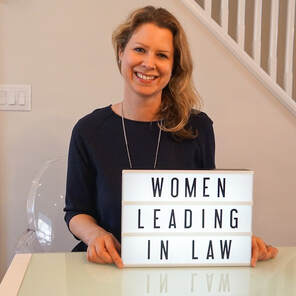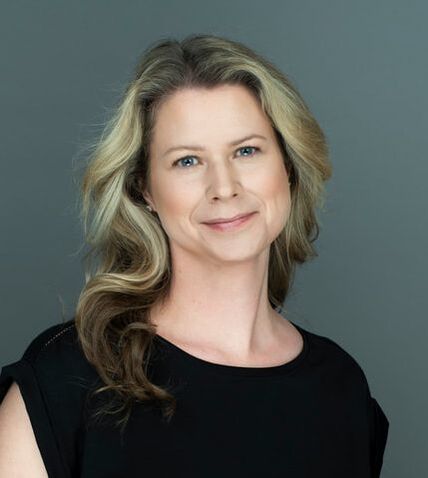 I know this next leading lawyer through my volunteer work with the Ontario Bar Association and in particular the Women Lawyers Forum. Richa Sandill is the current Chair of the WLF and an employment lawyer. She provides some great encouragement and advice to all lawyers and to new law grads in particular: 1. Tell me a little about your practice or business. I am a Staff Lawyer at Scarborough Community Legal Services (shout-out to the SCLS team!) practicing in Employment Law. Scarborough Community Legal Services is one of Ontario’s many amazing frontline community legal clinics. As an employment lawyer in the clinic system, my focus is on advising and representing low income workers across pretty much every employee-side employment law issue. This ranges from wrongful dismissals and severance negotiations, to Ministry of Labour Claims, Small Claims Court and Superior Court litigation, Employment Standards Appeals at the Ontario Labour Relations Board, Employment Insurance advice and appeals, and my not-so-secret favourite, Human Rights Tribunal litigation. A lot of my work also interacts with other aspects of poverty law such as social assistance, immigration, and housing. Being a clinic lawyer also means that I get to collaborate with other lawyers and community organizers in the clinic system on workers’ rights issues. Conducting public legal education in the Scarborough community and actively identifying opportunities for law reform as it relates to employment law are also part of my role. 2. Why did you go to law school? I grew up in a first-generation Indo-Canadian household which fuelled me with a passion for social justice, and that’s what ultimately led me to law school. Growing up with two cultures meant that I got to see the world a little bit differently. I learned early on what it meant to have to deal with patriarchy, what it meant for not every rule or norm to make sense, and what it meant to question things. Amidst all that though, my mom and my Nana (maternal grandfather) played a huge role in how I developed into the person that I was by the time I decided on law school in the United Kingdom in 2010. In 1970s and 80s India, where the general expectation for women was marriage, my Nana was busy pushing his three daughters to excel in academics and their career. So, it was no surprise that he and my mom made sure to instill the same passion and drive into me many years later. They encouraged me to be a bookworm, to study the world map, to write as much as I could, and to work hard. Through those readings, I discovered the paths that women like Nellie McClung and Clara Brett Martin forged through their challenges to the law. The Famous Five honestly inspired me to no end and made me want to be a lawyer from the first time I discovered them at age 12. My mom was also a huge part of why I went to law school. Despite all kinds of challenges as a single parent, my mom raised me to be a feminist, to have a voice and be a voice for others. Her drive made me want to be in a job and a path that allowed me to help people and make a difference. I try hard not forget these reasons, and feel so lucky that I did end up in a role that reflects them in many ways. 3. How did you get to where you are today? Design? Chance? Both? Chance, and a lot of getting outside of my comfort zone. With my mom’s support, I was able to go to law school in the United Kingdom directly after high school. I completed my degree there and came back to Toronto in 2013 as a National Committee of Accreditation or “NCA” candidate. I was young, lost and honestly had no idea how to navigate the Toronto legal market. This was only seven years ago, but there was in my experience much less awareness in the profession of the NCA process back then compared to what there is now. This meant that I had to hustle. Alongside doing my accreditation exams and working a full-time non-law job, I joined every bar association and attended every networking event I could find. I zeroed in on employment law as my area of practice interest early on in this journey. So, I began to also cold email (harass?) every employment lawyer I could find in Toronto whose practice I found interesting. It was tough – you’ll recall that I said above how much of a bookworm I was, so networking did not come naturally to me. There was a lot of embarrassment, a lot of rejection, and a lot of times where I genuinely worried if I would ever get an articling position, let alone become a lawyer. Yet somehow the world put the best people in my path during that time. Countless lawyers who had never met me before gave me their time and their advice over coffee – for some reason, most often at the Starbucks at First Canadian Place. Others saw things in me that I might not have seen in myself at the time. For example, at one of those networking events in 2014, I met three incredible women that Erin you know very well: Linda Silver-Dranoff, Judi Huddart, and Maryellen Symons, all of whom encouraged me to apply to the Ontario Bar Association’s Women Lawyers Forum (OBA WLF)’s executive committee. That is what started my path towards being as involved as I am now in the OBA and in the profession. Being around the WLF and its incredible executive committee also really gave me an awareness of issues that women face in the profession even before I started practicing. Those years really influenced how outspoken I am today about equity, diversity, and discrimination. I also met the incredible Geri Sanson at another event, who was then Chair of the OBA’s Constitutional, Civil Liberties and Human Rights section. Not only did she encourage me to join that section’s executive as well, she was also such a supportive voice throughout this time for me. She introduced me to other human rights and employment lawyers, some of whom became mentors for me down the road. Today, I am proud to be both Chair of the WLF and a member of the South Asian Bar Association Board, and I can directly attribute that to this phase of my journey. It was also through that harassing cold calling that I met Stuart Rudner for coffee in 2015. A few months later, I had finally finished my NCA exams, and was temping as a legal assistant for different law firms while figuring out what to do about articling. That’s when I got a call to temp at an employment law firm in Yorkville for a brief week. That firm turned out to be Rudner MacDonald – and Stuart remembered me! And I ended up getting along with everyone in that firm so well as a temp that they asked me to come back for another week. And then another week. And then three months later, I was still there – and ultimately ended up staying there, articling, and becoming an employment lawyer. My passion for social justice never left me though, and I knew that as much as private practice presented opportunity for me, my heart was somewhere else. So, in 2019, I took the leap and began applying for jobs in the clinic system. I was actually away in India when I got a phone call from my now Executive Director at SCLS to come in for an interview. Of course, the interview was scheduled for the day after I landed. Fortunately, jet lag didn’t get in the way, and over a year later, here I am, doing a job and working with a team that makes me so incredibly happy. 4. What is your most significant achievement? What are you proud of? Honestly, the fact that I am here, doing the meaningful work that I get to do every day in the clinic system for the clients that I do makes me prouder than anything else. I get to work on the kinds of things that I went to law school for to begin with. I might be biased, but the community we serve in Scarborough and the clients I get to work with are some of the most resilient, wonderful, and diverse that I have ever had the chance to work with as an Employment Lawyer. I work with a lot of recent immigrants and relatively precarious workers, many of whom do not speak English and are far more vulnerable to abuse as a result of their unfamiliarity. But they are some of the strongest people I have ever met. I learn so much from them and their perseverance in the middle of adversity every single day that I get to represent them. The fact that I can be that difference in enforcing their rights, being their voice in a system that might otherwise not recognize their experiences, or challenging discriminatory practices in the workplace, is more than I could have ever wanted from my work. If I have to pick single achievements, two other things come to mind. One is my election to the position of Chair of the OBA WLF this year. As I mentioned above, the WLF has been so integral to who I am as a lawyer thus far. I am so proud to have had the chance to make my own contributions to it as its Chair this year. The other is with respect to my work on unpaid articling in 2017 during the Law Society of Ontario’s Dialogue on Licensing. My colleagues Litsa Dantzer, Laura Abitbol and I conducted a survey of over 200 recent articling/LPP students to understand how prevalent unpaid positions were. We also anonymously documented stories of harassment and abuse as a result of the power imbalances in such articling setups. We used that towards our submission to the Law Society’s Dialogue on Licensing review in 2017. While I can’t say that it was directly because of our work by any means, the subsequent transitional training model that the Law Society adopted in December 2018 did include a requirement for paid placements. I saw a lot of horrible things happening to NCA students articling for free during my time, so even if we were 1% of the difference, that makes me incredibly proud. 5. What are some key challenges, and more importantly, opportunities for women in law? I think as a woman in litigation, I am cognizant of the ever-persistent micro-aggression tactics that are still used towards women lawyers, and particularly the younger ones. For example, older male opposing counsel walking up and asking “oh you look so young! Where did you go to law school?” or “don’t get so emotional over this.” Or, as a racialized woman, just the never-ending refusal to say my name right (it’s not Reeeesha!) But I want to focus on the opportunity side of things. The women that inspired me to go to law school, practice in my chosen area, and join the OBA fought hard so that women like me did not have to think twice before doing any of those things. There is so much opportunity for women today to become leaders in the profession and experts in their practice areas. Just ask the WLF – we do an entire series called Pathways to Power which showcases this! (and which just won an award at the National Conference of Women’s Bar Associations – not to brag or anything). The world is your oyster if you know what you want, are willing to work hard, and go for it, come what may. The age that we are in also sees an opportunity for women to really raise their voices, particularly in light of the #MeToo movement. This is an unprecedented time in which issues that should have gotten a voice years ago are now being spotlighted. Use this opportunity to use your voice for yourself and your clients. Use your voice to challenge the norm. Use your voice to keep making our profession and our world an inclusive place. Look for the opportunity to become a voice for someone else who might not have one in the justice system – and don’t just give them your voice. Listen and give them the voice that they need and deserve. 6. What advice would you give a woman starting her legal career? These are challenging economic times for new law school grads. I’m sharing my story above in detail hoping that reading it will give someone else advice and hope should they find themselves in the shoes I was in back in 2013. I would also say that you need to know what you want and be persistent. Look for opportunities for growth even in the middle of challenges. Realize that everyone has gone through the same learning curves as you are, and it’s ok if you don’t know everything yet – because no one does. Build authentic relationships with the colleagues and other lawyers that you meet. And most importantly, be yourself. I cannot stress this enough. Law is definitely one of the more traditional professions, and all firms/workplaces come with their own cultures. Like any other relationship in life, you are going to be so much happier if you find somewhere that accepts you for you. As you develop as a lawyer, stay true to yourself – so for example, you don’t have to be an aggressive personality to litigate. You don’t have to be a networking person to thrive in private practice. As long as you find what fits your passion, you will find a way to get where you need to be. ---------------------------------------------------------------------------------------------- Thank you so much for your words of wisdom and encouragement Richa! I started this blog series because I was tired of hearing about women leaving law and wanted to hear about women leading in law. The "Women Leading in Law" series focuses on good news stories and highlights amazing women succeeding in the legal profession. Each post includes the profiled lawyer's answers to six questions. Prepare to be inspired! ICYMI - previous posts profiled the following amazing lawyers: Vivene Salmon, Kim Whaley, Alisia Grenville, Frances Wood, Maggie Wente, Anita Szigeti, Neha Chugh, Christy Allen & Nancy Houle, Suzie Seo, Kim Gale, Alexi Wood, Melissa McBain, Erin Best, Gillian Hnatiw, Melanie Sharman Rowand, Meg Chinelo Egbunonu, Lisa Jean Helps, Nathalie Godbout Q.C., Laurie Livingstone, Renatta Austin, Janis Criger, May Cheng, Nicole Chrolavicius, Charlene Theodore, Dyanoosh Youssefi, Shannon Salter, Bindu Cudjoe, Elliot Spears, Jessica Prince, Anu K. Sandhu, Claire Hatcher, Esi Codjoe, Kate Dewhirst, Jennifer Taylor, Rebecca Durcan, Atrisha Lewis, Vandana Sood, Kathryn Manning, Kim Hawkins, Kyla Lee, and Eva Chan.
0 Comments
Your comment will be posted after it is approved.
Leave a Reply. |
Erin C. Cowling is a former freelance lawyer, entrepreneur, business and career consultant, speaker, writer and CEO and Founder of Flex Legal Network Inc., a network of freelance lawyers.
Categories
All
Archives
April 2022
|
|
(C) 2014-2024 Cowling Legal. All rights reserved.
|
Please note I do not represent legal clients of my own and I am no longer taking on freelance lawyer projects for other lawyers at this time.
Information on this website does not constitute legal advice and is for informational purposes only. Accessing or using this website does not create a solicitor-client relationship. See website Terms of Use/Privacy Policy. info@cowlinglegal.com
3080 Yonge Street, Suite 6060 Toronto,ON M4N 3N1 (appointment only) |







 RSS Feed
RSS Feed
